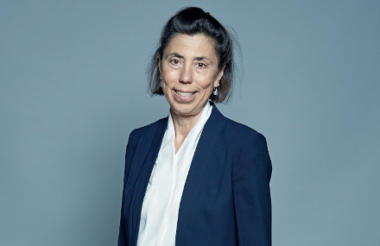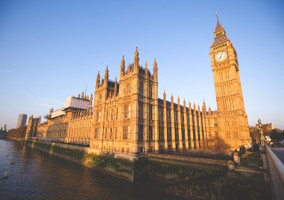The government and the National Lottery Community Fund (NLCF) are “just resolving final issues” regarding the £370m promised to help small charities with the impact of Covid-19, Baroness Barran has said.
Baroness Barran, minister for civil society, was speaking at NPC’s State of the Sector launch yesterday. She said: “I know that there has been a lot of concern about the pace at which we are getting funding out to charities around the country.”
She claimed that of the £360m allocated to other government departments, “most of that has now been allocated or is open for applications”.
In April the government announced a £750m package. £360m is being distributed by central government departments. £370m will be “allocated largely to small and medium-sized charities”, mainly via the NLCF.
Barran said the government and the NLCF are “just resolving final issues around governance and prioritisation of that funding” before allocating the £370m pot.
Focus on digital skills
Responding to NPC's State of the Sector research, Barran said she did not think there is a reason to change the government's overall priorities towards the sector.
She said the government will continue to focus on “building community, young people, and improving how we spend the money we spend as a government with the voluntary sector”.
She said: “There will be some shifts within that, and some of that has been brought out in [NPC] research. So firstly we clearly need to be more creative and focused around digital skills and digital responses, so that’s both skills within charities and responses to beneficiaries.”
She added: “In terms of community building, I think we need to lean in, and it is difficult for government, we’re not good at hyper-local, but I think we need to lean into what’s working.”
Barran also said the government must think about how it can use the crisis to support match funding, volunteering and collaboration between charities.
“I think there’s new things we should be thinking about. How can we use the crisis to crowd-in both funding, match-funding, but also crowd-in time – we’ve seen great generosity in terms of volunteering – and also crowd-in collaboration between charities,” the minister said.
Social divide
Barran said the BAME community needs to be central to the coronavirus response.
She said the issue of “levelling up” came up throughout last year's election campaign, with “parts of the country feeling very left behind”. “Given the terrible impact that Covid-19 has had on the BAME community, that has to be a critical part of that work,” she said.
Barran added that the social divide is highlighted through people's differing experiences of lockdown.
“There are a bunch of people for whom lockdown has meant they could spend more time in their garden, working from home, and actually a lot of it has been pleasurable, and then there’s another group of people for whom this has been a terrible experience, and they’ve been locked in at home without any space outside, worried about loved ones who are working on the frontline, and living in abusive relationships whether as adults or children.
“So, I worry about that kind of real gap in experience as we come out of lockdown and how we bring our communities together in a healthy way,” she said.
'Charities need to prioritise'
Referring to NPC's finding that charities were expecting to do more with less, Barran said: “We can’t all do everything, and that’s probably something which as a sector we’re not brilliant at doing.
“We don’t like saying ‘I’m going to do X and not do Y’, but actually perhaps that’s a different way of thinking about it. What are the behaviours that will drive the outcomes we want and how can government policy and money support that?”
She also urged charities to find better ways of demonstrating their impact.
“I still see endless evaluations that say 70% of people felt better, with no attribution of the feeling better,” she said.












